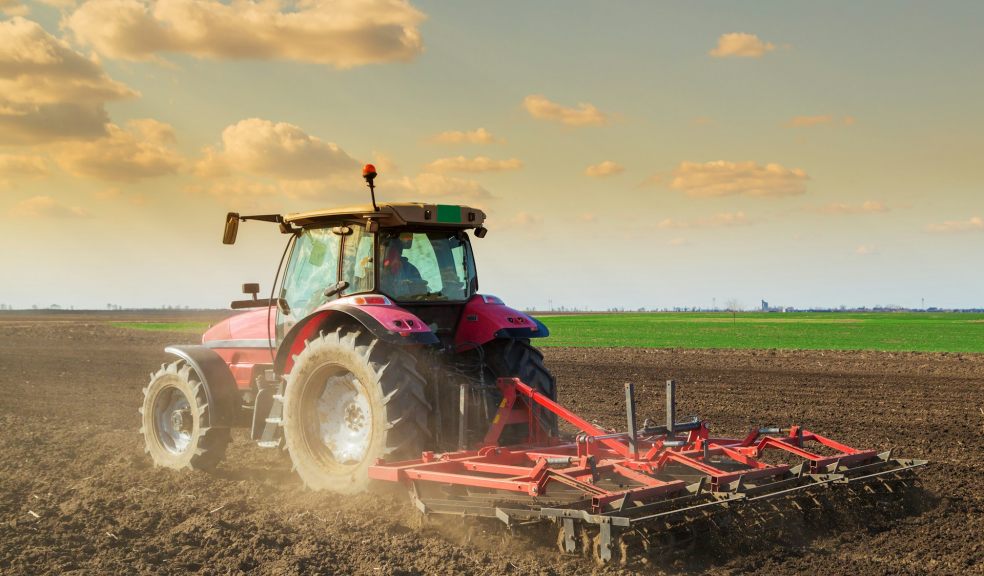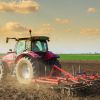
Farm Machinery Maintenance Checklist: Daily, Seasonal,and Annual Tasks
Key Takeaways
- Neglecting equipment leads to breakdowns, reduced lifespan, and decreased efficiency.
- Proactive maintenance prevents small issues from becoming costly repairs.
- It's crucial to perform daily, seasonal, and annual checks for comprehensive care.
- Keeping maintenance records helps track work, identify patterns, and schedule future tasks.
- Safety checks should always be integrated into the maintenance routine.
- Consistent maintenance is an investment that protects your livelihood and contributes to long-term reliability and fewer breakdowns.
Your farm equipment does much of the work every day. It handles challenging jobs, faces various weather, and keeps your farm operation moving forward. But without regular care, even the best machines can slow down, break, or stop working when you need them most.
That's where a simple maintenance routine comes in. Checking your equipment helps prevent minor problems from turning into significant repairs. It also helps your machinery last longer and perform better throughout the year.
If you're wondering how you can keep your equipment in top shape, here are a few pointers:
Daily Tasks: Keeping Things Running Smoothly
Daily maintenance tasks keep your equipment in top condition and ready for a full day's work. Although they only take a few minutes, they're essential for preventing larger problems.
Here's a quick checklist for your daily maintenance tasks:
Perform a Visual Inspection
Start each day with a visual inspection of your farm machinery. Look for signs of wear, loose parts, fluid leaks, or anything unusual. Minor issues can quickly turn into bigger problems if left unchecked.
Take extra time to inspect the tyres, ensuring they're properly inflated and free from cracks or visible damage. For machinery used on public roads, double-check that all lights and safety indicators are fully operational to stay compliant and safe.
Check All Fluid Levels
Once the visual inspection is complete, focus on your fluid levels. Engine oil, coolant, and hydraulic fluid should always be within the recommended range. Fluids that appear milky, discoloured, or contaminated may signal deeper mechanical issues.
Keep Machinery Clean
Before heading into the field, clean off built-up dirt, plant debris, or mud from the machine's surfaces. Allowing grime to accumulate traps moisture, encourages rust, and can hide developing issues. A quick rinse or wipe-down will help protect your equipment and make it easier to spot problems early.
When purchasing new or used farm equipment, consider maintenance as part of the decision-making process. If you need help finding dependable machinery or replacement parts, consider visiting this store. Opt for suppliers that offer a wide range of products, well-built equipment, easy access to service components, and clear guidance on maintenance schedules.
Seasonal Maintenance Tasks: Preparing for Changing Conditions
Each season brings a new set of challenges for your farm machinery. Whether it's the start of planting, the rush of harvest, or the quiet of winter, seasonal maintenance ensures your equipment stays reliable and efficient when needed.
Here are a few tips for seasonal maintenance tasks:
Get Ready for Planting Season
Before planting begins, inspect your agricultural machinery thoroughly to ensure everything is field-ready. Start by changing the engine oil and filters to keep internal systems running smoothly. Check the battery for corrosion or wear and test its charge. You should also examine belts and hoses for cracks, slack, or signs of fatigue.
Once these basics are taken care of, focus on lubrication and attachments. Grease all moving parts to reduce friction and prevent early wear. Then, inspect tools like seeders and ploughs to confirm everything is tightly secured and aligned to improve performance and lower the risk of mid-season repairs.
Prepare for Harvest Demands
As harvest approaches, shift your attention toward peak performance. Machines will be under constant pressure, so replacing worn components ahead of time can prevent breakdowns during critical hours. Most importantly, don't overlook the cooling system. Dust builds up quickly during harvest, and clogged radiators can lead to overheating.
Winterise Your Equipment
Once winter sets in and certain machines go idle, preparing them for storage is key to protecting your investment. Drain water from tanks, hoses, and lines that could freeze and cause damage. Use a fuel stabiliser to maintain quality and prevent buildup in the system.
To avoid battery discharge during long periods of inactivity, remove the battery and store it in a dry, temperature-controlled space. Whenever possible, use equipment covers or move machinery into sheltered areas to reduce exposure to harsh weather.
Annual Maintenance Tasks: Deep Cleaning and Overhaul
Farm machinery should receive a detailed inspection and full-service overhaul every year. This is the ideal time to catch hidden issues that aren't always noticeable during daily checks or seasonal maintenance. A thorough annual check will help improve long-term reliability and extend the life of your equipment.
Here's a quick annual maintenance checklist:
Inspect the Engine and Drivetrain
Electrical systems also deserve close attention during your annual maintenance. Begin by changing all fluids to ensure internal systems operate efficiently. Replace air and fuel filters to avoid performance issues caused by clogs.
For gas-powered equipment, check the spark plugs and replace them if needed to maintain proper ignition. It's also crucial to inspect the transmission and differential. Smooth operation and quiet performance are signs of good condition. However, address any grinding, slipping, or strange noises immediately.
If hydraulic servicing hasn't been done, now is a good time to flush the old fluid. Check hoses, seals, and fittings for any signs of leaks, cracks, or wear to prevent pressure loss and keep your machinery running efficiently.
Service the Brake System
Once the drivetrain is in good shape, focus on the braking system. Check brake pads, drums, or discs for wear and make sure they respond effectively under load. Reliable brakes are essential when navigating uneven terrain or transporting heavy loads.
Machines built for heavier workloads often include a parking brake that needs regular inspection. Test it to confirm it holds the equipment securely, especially when parked on a slope.
Check Electrical Components
Electrical systems play a critical role in overall performance. Unfortunately, many people overlook it until something goes wrong. During your annual maintenance, test every part of the electrical system, including lights, sensors, control panels, and wiring.
Clean the battery terminals and check the battery's charge to avoid slow starts or failures during operation. Secure connections help reduce the risk of short circuits or equipment malfunctions in the field.
Examine the Structural Frame
As the final step in your annual maintenance, focus on the machine's structural integrity. Begin by checking joints, frames, welds, and support components for any signs of rust, cracks, or bending. These issues can compromise the equipment's strength over time.
Next, look for loose or missing bolts, which can weaken overall stability. Tightening fasteners will help keep the machine secure during operation. For equipment that uses heavy-duty attachments, it's crucial to confirm that all connectors are firmly in place and components remain aligned.
Tips for Successful Farm Machinery Maintenance
Here are a few farm equipment maintenance tips to keep your tools in good condition:
Get Professional Help When Needed
While you can often handle routine maintenance independently, major repairs are better managed by experienced professionals. This is especially true for complex engine problems, transmission issues, or electrical faults that require specialised tools and knowledge.
Many dealerships offer annual service packages that include comprehensive inspections, fluid replacements, and even software updates to make things easier. Although these services may seem costly, they help you avoid unexpected breakdowns and expensive emergency repairs. This frees up your time and resources to focus on other ways to improve your farm and increase your produce.
Use the Right Tools and Supplies
A good maintenance checklist is only effective if you have the tools to back it up. Stock your workshop with essentials like
- Wrenches, socket sets, and screwdrivers
- Grease guns and lubricant
- Tire pressure gauges and air compressors
- Multimeter for electrical testing
- Cleaning supplies like brushes, rags, and degreasers
Having the right items on hand helps you handle small fixes right away instead of putting them off. It also makes your daily and seasonal tasks go faster and smoother.
Keep Records of All Maintenance
While documentation might not seem exciting, it is key to effective farm equipment maintenance. It allows you to track completed work, recognise patterns, and schedule repairs before minor issues become bigger problems.
Note the date, the type of service performed, and any identified issues each time maintenance is performed. Over time, this record will become a valuable resource.
Don't Skip Safety Checks
Safety should always be part of your farm equipment maintenance routine. Check for loose guards, missing labels, and faulty lights or horns during each inspection. Confirm that rollover protection structures are secure and that seat belts are in good condition.
Beyond equipment checks, make sure you train all operators in safe practices. When people know how machines should sound and behave, they'll likely catch issues early. This proactive approach helps prevent accidents, reduces downtime, and protects workers and equipment throughout the farming season.
Use Telematics and Maintenance Alerts
Modern farm equipment often has built-in monitoring systems designed to simplify maintenance. These tools can track engine hours, oil temperature, and service intervals, giving you a clearer picture of your equipment's condition.
Real-time updates keep you informed, allowing you to stay on schedule and catch potential issues before they become costly repairs. To stay even more organised, consider adding calendar reminders or alarms to support your daily and seasonal checklists.
Extend Equipment Lifespan Through Proper Use
Extending the life of your farm equipment isn't just about consistent upkeep. It also comes down to how the machinery is used each day. Operating within recommended limits helps prevent unnecessary wear and tear. Also, avoid practices like overloading, long idling periods, or speeding over rough terrain, as these can place added stress on the engine and mechanical parts.
In addition to mindful operation, developing habits like warming up equipment before use and allowing it to cool down after heavy work can make a big difference. These simple steps protect vital components from temperature-related damage and keep systems running smoothly. When combined with regular maintenance, proper use ensures your machinery stays reliable and efficient for years to come.
Conclusion
Taking care of your farm machinery isn't just about preventing costly breakdowns but protecting your livelihood. Regular maintenance might take a few minutes each day and a bit more seasonally. Still, that investment pays off through reliable equipment, fewer expensive repairs, and machinery that lasts.
Remember that every piece of farm equipment is a crucial tool for your success. Take time each day for small checks, prepare your machines when the seasons change, and schedule deep inspections once a year. These small habits lead to long-term reliability and fewer unexpected breakdowns.

















